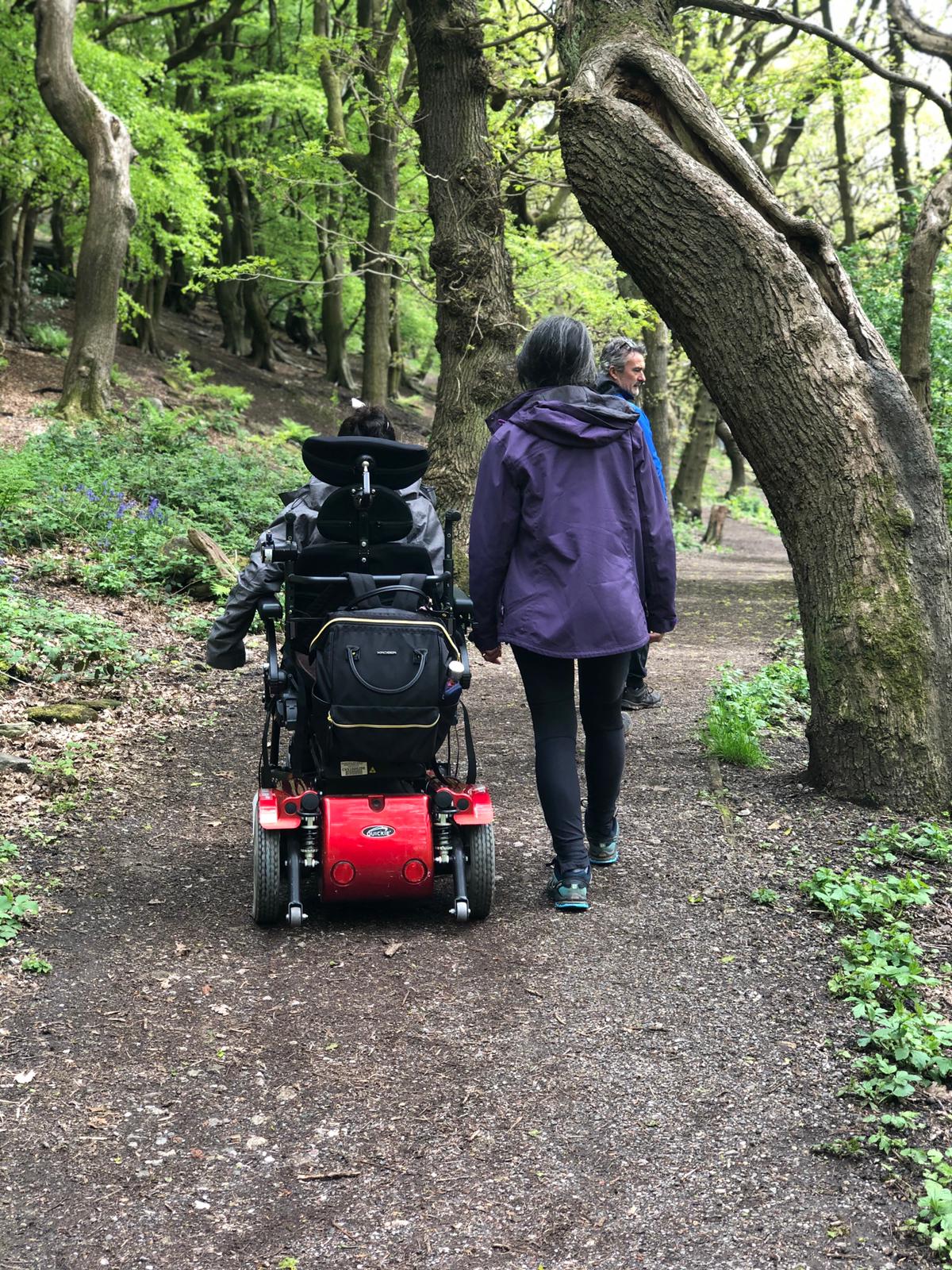In the latest instalment of the Historic Environment Forum’s Sector Resilience Interviews series focussed on the theme of Diversity and Inclusion, we speak to Katie Clarke, co-founder of accessibility social enterprise Visits Unlimited.
Please tell us a bit about yourself and your organisation’s role in the sector.
I am Katie Clarke – I am a foster parent, parent carer of 6 adult children including a daughter who is profoundly deaf and a wheelchair user. I have worked in the 3rd sector for over 28 years. I am co-founder of Visits Unlimited which is a user led organisation working in the field of tourism, heritage and countryside.
Access and Inclusion is at the heart of what we do. We ensure that local disabled people are central to planning and co-production. We deliver national access audits through our own access auditor Chris Cammiss, to a wide range of venues and disability equality training to heritage staff and volunteers.
We are based in Halifax, West Yorkshire and run a local project called the Accessible Calderdale Project. We host the Accessible Calderdale Disability Access Forum which has over 60 members with a wide range of disabilities. We have done over 160 access audits that have been free to the Cultural, Heritage, Greenspaces and parks, tourist venues and voluntary organisations. This has been thanks to working together with Community Foundation for Calderdale and the local Council. We are also commissioned on Major Projects to advise and to be there at the beginning of new local projects. We have partnered with CultureDale for our Year of Culture and run monthly sessions for disabled people to have a voice in ensuring that culture is accessible and inclusive. We work closely with Halifax Heritage Tours to improve access and inclusion to their tours and local historic buildings.
What can you tell us about your organisation’s work in relation to Diversity and Inclusion? What does this work aim to achieve?
Our access audits break down the physical barriers facing disabled people.
We deliver training nationally and locally led by people with lived experience of disability. Our trainers are neuro-divergent/wheelchair user and parent. Our courses are informative, fun, participative and real. We break down the attitudinal barriers with open discussions with attendees, some of whom have a connection with disability.
We work in co-production with many local organisation including Visit Calderdale, West Yorkshire Combined Authority, and the voluntary sector. All our local work is user led allowing disabled people to have a voice locally in improving access and inclusion throughout Calderdale by raising awareness of issues and solutions from local transport and travel, to improving tourist site access so that disabled people who live, work, study and visit our area have the same opportunities as everyone else.
We raise awareness at local strategic level with representation of our local disabled community through our Access Forum. We believe that if you get it right for disabled people you get it right for everyone. Our offer impacts older people and families with buggies.
What contribution will this make towards resilience in the heritage sector?
What does success look like for your work?
Success is when disabled people, their families and carers are able to enjoy our local area, to hear the stories of the history of our beautiful region, to feel a connection with heritage, and enjoy the same opportunities as non disabled people.
We will work locally with the Halifax Heritage Tours to improve opportunities and measure this through having accessible tours co-designed by our group. Currently our access auditor is working closely with audit some of the tours. We also would like to have our local community transport involved to give local people and disabled people the opportunity to access some of the trips.
We regularly do surveys with our membership and evaluation forms. The Access Forum also have monthly meetings to share experiences and work together on issues that are important to them. They are involved in all our work and feedback their thoughts and steer the organisation forward.

How can sector colleagues get involved or find out more?
Help publicise our work nationally and locally. Come and visit Calderdale! We will make you very welcome.
Overall, what do you think is most crucial for ensuring a resilient heritage sector?
To raise the profile of diversity and inclusion and become a welcoming sector which will improve all round perceptions. For information to be available on access and inclusion and for this to be a priority rather than something that goes to the bottom of the pile or is a tick box exercise. Making inclusion real through publicity and promotion.
Katie Clarke katie@visitsunlimited.org.uk
This Sector Resilience interview was shared by Katie as part of our Heritage Sector Resilience Plan activities.
If you’d like to contribute an interview as part of the series, follow the link below to find out more:

